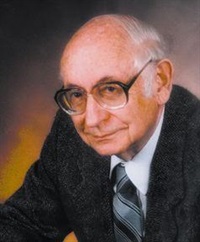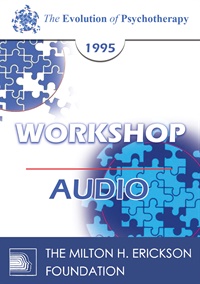EP95 Workshop 03 - Anxiety Disorders: Their Efficient Elimination by Behavior Therapy - Joseph Wolpe, MD
- Average Rating:
- Not yet rated
- Topic Areas:
- Workshops | Anxiety | Psychotherapy
- Categories:
- Evolution of Psychotherapy | Evolution of Psychotherapy 1995
- Faculty:
- Joseph Wolpe, M.D.
- Duration:
- 2 Hours 28 Minutes
- Format:
- Audio Only
- Original Program Date:
- Dec 13, 1995
- License:
- Never Expires.
Tags: Anxiety Joseph Wolpe Psychotherapy
Description
Description:
Seminal laboratory experiments show how habits are unlearned. Behavioral analysis: Accurately identify fear eliciting stimulus patterns. Description of major techniques with case examples, e.g., systematic desensitization, flooding, assertiveness training. Practica involving attendees showing treatment of specific anxiety constellations will reveal how the therapist adjusts to the individual.
Educational Objectives:
- To demonstrate that anxiety disorders are learned habits, extinguishable by competing responses.
- To provide initial skills in the practice of behavior therapy methods.
*Sessions may be edited for content and to preserve confidentiality*
Credits
Faculty

Joseph Wolpe, M.D. Related Seminars and Products
Joseph Wolpe, MD, was a South African psychiatrist, one of the most influential figures in Behavior Therapy. Wolpe grew up in South Africa, attending Parktown Boys' High School. Joseph received his M.D. in 1948 from the University of Whitatersrand in Johannesburg, South Africa. He was Emeritus Professor fo Psychiatry and Former Director of Behavior Therapy Unity at Temple University Medical School. He was Professor of Psychiatry at the Medical College of Pennsylvania. One of the leading practitioners of behavior therapy, he has authored three books and co-edited two, and has more than 200 professional publications. He cofounded the Journal of Behavior Therapy and Experimental Psychiatry. He is receipient of the Distinguished Scientific Award for the Applications of Psychology from the American Psychological Association.


